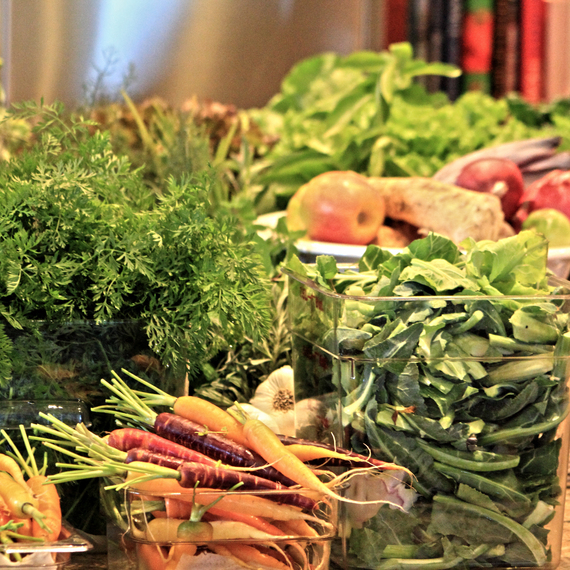Advocates and practitioners of what is commonly perceived as the farm-to-table movement generally agree about what they mean by the phrase. While the farm-to-table term supposedly originated in the media only around 2006, typically, it involves having some knowledge about the growing/raising practices and believing that the ingredients are subsequently minimally processed. Skeptics and naysayers often pose the seemingly valid question: "Isn't it all farm to table?" The answer for me is No. Growing something in a laboratory aside (the future, for sure), while almost all food originates in a farm of some type, the problem is that the word "farm" requires some re-definition in order to account for the things that have gone awry with the activity of farming. Linguistically speaking, a farm may be defined as "a unit of land or water devoted to the growing or rearing of some particular type of vegetable, fruit, animal, or fish". This was a perfectly reasonable definition when it was first conceived. Today, farms are as diverse as the people who farm. A farm on the island of Mauritius (say) looks very different from some of the world's largest farms in Australia, Canada, the former Soviet Union, or the United States. While both serve some of the same function, the activity of farming is dramatically different for the two. One feeds a few families while the other feeds a few million families. So, of course, they would farm differently. The point is that when the phrase "farm-to-table cuisine" was first showcased in the United States in the early 1970s by chefs like Alice Waters at Chez Panisse, the thinking was along the lines of the official statement from the restaurant's web site "Alice and Chez Panisse are convinced that the best-tasting food is organically and locally grown and harvested in ways that are ecologically sound by people who are taking care of the land for future generations. The quest for such ingredients has always determined the restaurant's cuisine." The noteworthy point is that the food just tastes better when it is grown and sourced this way. As a chef, I can attest to that. Just yesterday, I saw a post on social media of a delicious looking caprese salad, so I asked the individual who posted the photo if the tomatoes tasted as good as they looked and the response I got "they were good, but not great. Can't wait for those farmers' market tomatoes this summer!" gives me faith that we are headed in the better direction.
So, chef advocates of farm to table cuisine should be continually making the point that their version of sourcing (local, sustainable, organic etc.) makes the food taste better. Isn't that a tremendous advantage which can be leveraged for the profitability of the restaurant? And, that is reason enough for customers to support and even demand. I am not proposing that every dining experience and decision needs to be made keeping this in mind, but imagine if every diner who isn't already doing so, pledged that once a month, they would make the effort to seek out and dine at a true (this can be tricky, but that will change) farm-to-table restaurant for their meal. A simplistic calculation would show that if 50% of adult Americans who already dined out at a casual restaurant once a week (many more already eat at fast food establishments, at least once a week) ate one in every four meals at a farm to table restaurant, it would generate 2.5 billion dollars for the true farm-to-table restaurant industry (owners, employees, farmers, etc.) each year. And if the supply cannot keep up with the demand, consumer driven market history would suggest that the supply would amp up. That is precisely the world that some of us are striving towards.
